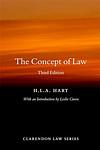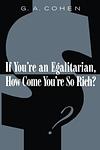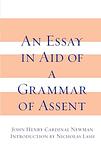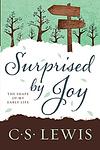The Greatest "Nonfiction, Oxford" Books of All Time
Click to learn how this list is calculated.
This list represents a comprehensive and trusted collection of the greatest books. Developed through a specialized algorithm, it brings together 301 'best of' book lists to form a definitive guide to the world's most acclaimed books. For those interested in how these books are chosen, additional details can be found on the rankings page.
Genres
Countries
Date Range
Reading Statistics
Click the button below to see how many of these books you've read!
Download
If you're interested in downloading this list as a CSV file for use in a spreadsheet application, you can easily do so by clicking the button below. Please note that to ensure a manageable file size and faster download, the CSV will include details for only the first 500 books.
Download-
1. Oxford English Dictionary by Oxford University Press
This book is a comprehensive and authoritative resource that provides definitions, etymology, and pronunciation for more than half a million English words. It is widely regarded as the accepted authority on the English language. The dictionary includes words from across the English-speaking world and from all areas of human knowledge, and is continually updated to reflect the evolution of the language.
The 1634th Greatest Book of All Time -
2. The Concept Of Law by H. L. A. Hart
This seminal work in legal philosophy offers a comprehensive analysis of the nature of law, articulating a sophisticated theory that emphasizes law as a system of social rules. It challenges earlier positivist and command theories of law, introducing the idea of the "rule of recognition" as a fundamental aspect by which a society accepts certain norms as legally binding. The book also explores the relationship between law and morality, the variety of legal systems, and the notion of legal rights, ultimately providing a framework for understanding the complex structure and functioning of legal institutions in modern societies.
The 1798th Greatest Book of All Time -
3. Four Essays On Liberty by Isaiah Berlin
This philosophical work is a collection of essays that explore the concept of liberty and its place in modern society. The author delves into the distinction between two forms of liberty—negative and positive—and examines the tensions and conflicts that arise between them. The essays also discuss the limits of freedom, the role of individual choice, and the impact of social and political pressures on personal liberties. Through historical examples and philosophical argumentation, the author presents a nuanced view of freedom, suggesting that a balance must be struck between individual liberty and communal values to maintain a stable and just society.
The 3269th Greatest Book of All Time -
4. If You're An Egalitarian, How Come You're So Rich? by G. A. Cohen
This book delves into the apparent contradiction between advocating for egalitarian principles and possessing personal wealth. The author, a prominent political philosopher, uses a blend of rigorous argument, personal reflection, and analytical philosophy to explore whether it is hypocritical for a wealthy person to support redistributive policies. The text challenges readers to consider the moral implications of their own economic status and beliefs, and examines broader issues of justice, equality, and personal responsibility within a capitalist society. Through engaging philosophical inquiry, the book prompts a deeper understanding of the practical and ethical tensions that accompany discussions of wealth and equality.
The 6680th Greatest Book of All Time -
5. The Idea Of A University by John Henry Newman
The book is a seminal work on higher education that explores the purpose, nature, and scope of a university's role in intellectual life. It presents a vision of university education as a place for cultivating the intellect and character, rather than merely a means to an end or a vocational training center. The author argues for the importance of liberal education, which provides a broad and holistic approach to learning, enabling students to develop their minds and moral sense. Through a series of discourses, the work defends the idea that the pursuit of knowledge for its own sake is valuable and that a university should be a community of thinkers, engaging in intellectual culture, and promoting academic discourse without succumbing to external pressures.
The 7160th Greatest Book of All Time -
6. A Grammar Of Assent by John Henry Newman
The book in question is a philosophical treatise on the nature of faith and the process by which individuals come to believe in religious doctrines. It explores the distinction between notional assent, which is intellectual agreement with an idea, and real assent, which is a deeper, more personal conviction. The author argues that faith is not solely based on logical deduction or empirical evidence but also involves a personal commitment that transcends purely rational understanding. This commitment, or real assent, is characterized by its certitude and the role of the conscience in apprehending religious truths. The work is a significant contribution to the philosophy of religion and the understanding of the role of faith in human cognition and action.
The 7160th Greatest Book of All Time -
7. Apologia Pro Vita Sua by John Henry Newman
The book in question is a profound religious autobiography that presents a defense of the author's spiritual journey from Anglicanism to Roman Catholicism. Written in response to criticism from an Anglican clergyman, the work meticulously details the author's theological reflections and the intellectual struggles that led to his conversion. It stands as a significant document of the religious controversies of the 19th century and offers insight into the author's personal convictions and the broader religious landscape of the time. The narrative is both a personal apologia and a broader exploration of faith and doctrine, reflecting the author's commitment to his beliefs and his desire to explain and justify his spiritual evolution to his contemporaries.
The 7160th Greatest Book of All Time -
8. Surprised By Joy by C. S. Lewis
The book is a reflective memoir by a prominent British writer, chronicling his early life, intellectual pursuits, and spiritual journey from atheism to Christianity. It delves into his experiences of seeking joy and fulfillment in various pursuits and relationships, only to find them lacking, leading to his eventual conversion. The narrative explores themes of longing, grief, and the ultimate discovery of faith, providing a profound insight into the author's personal and philosophical evolution.
The 8228th Greatest Book of All Time -
9. A Classical Education by Richard Cobb
"A Classical Education" is a humorous and insightful exploration of the author's experiences and reflections on the traditional classical education system. The book delves into the author's personal journey through the rigors of learning Latin and Greek, and the broader cultural and historical knowledge imparted by a classical curriculum. Through witty anecdotes and thoughtful critiques, the author examines the relevance and impact of classical education in the modern world, questioning what it means to be well-educated and how ancient teachings resonate in contemporary society.
The 10408th Greatest Book of All Time
Reading Statistics
Click the button below to see how many of these books you've read!
Download
If you're interested in downloading this list as a CSV file for use in a spreadsheet application, you can easily do so by clicking the button below. Please note that to ensure a manageable file size and faster download, the CSV will include details for only the first 500 books.
Download







